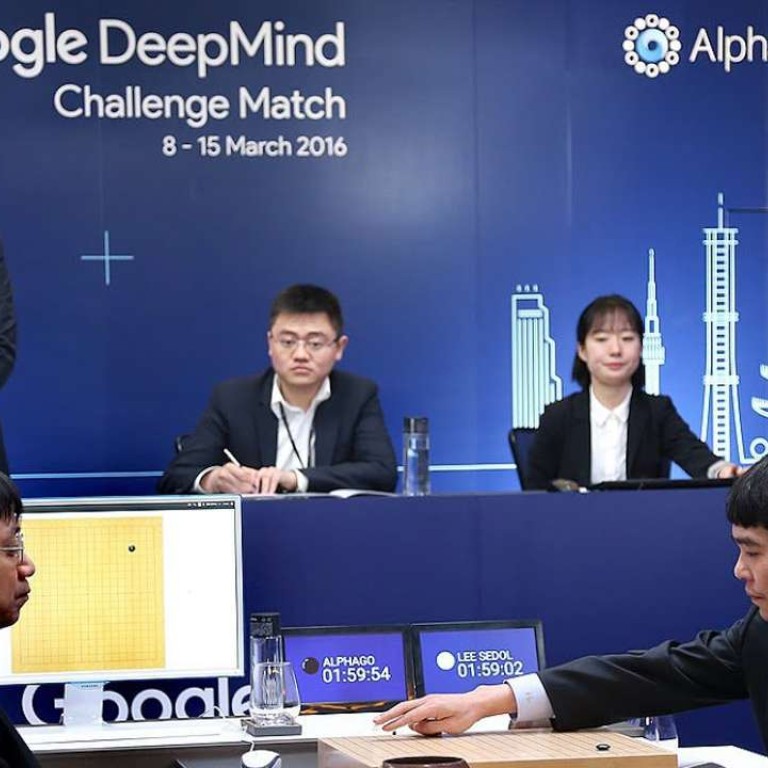
Update | Baidu’s AI robot upstaged by Google’s AlphaGo in show down against humans
Baidu’s Deep Learning Lab, which is leading the artificial intelligence programme at China’s dominant internet search engine, was upstaged by Google DeepMind’s AlphaGo on its home turf when it announced a duel against human competitors scheduled to be broadcast across China on Friday.
Deep Learning Lab will enter its artificial intelligence robot to solve problems in the popular television game show Super Brain in China. The challenge will involve using facial and voice recognition skills in three rounds against human challengers.
Watch: Baidu CEO says AI is next growth driver for company at the Hangzhou G-20
But rather than a threat to humans, AI is going to help people solve many problems and increase efficiency and productively
The first round of the Baidu AI versus humans contest will be aired on Jiangsu Satellite TV Station on Friday night.
Representing humanity in the challenge are a number of gifted individuals who won the previous Super Brain contest. For example, Wang Yuheng, a person with incredible eyesight, can quickly identify a selected glass of water from 520 glasses.
Andrew Ng, Baidu’s chief scientist, said in a video introduction of the show on Thursday that the facial and voice recognition puzzles they have chosen are very difficult for computers, but relatively easy for people.
“Humans have evolved thousands of years to recognise faces and they have intuition to do that. But computers have to do that by loading data,” he said.
In the first challenge, contestants will be given pictures of three females taken when they were between 100 days and four years old. The contestants will be asked identify the adults who match the baby photo. This involves selecting from a group of women in their 20s, dressed in similar clothes, sporting similar hairstyles and makeup.

The same day that Baidu announced its AI push, AlphaGo -- developed by rival Google’s DeepMind programme - revealed that it had scored a series of resounding victories in a week against several of the world’s top players of Go, including China’s Ke Jie.
The AI programme has secretly taken on and beat several players in China, Japan and South Korea in online challenges, winning 60 matches. DeepMind founder Demis Hassabis confirmed on Wednesday night on Twitter that the online contestant was in fact a new AI bot related to AlphaGo which is undergoing “unofficial testing”.
Lin Yuanqing, head of Baidu’s Institute of Deep Learning, said that in robot-versus-human contests involving games such as chess, computers often have the upper hand as these contests require a huge amount of memory storage, analysis, and calculation.
However, facial and voice recognition is a huge challenge for robots. He gave the example of young children who can easily recognise common house pets such as a cat.
“But for computers to learn what is a cat requires a lot of data,” he said.
Lin predicated that AI will be a very important technology in the next five to 10 years. He admitted that AI is going to make some low-end jobs redundant.
“But rather than a threat to humans, AI is going to help people solve many problems and increase efficiency and productively,” he said.

